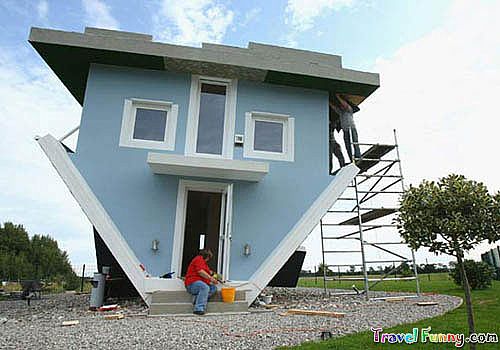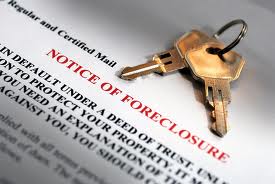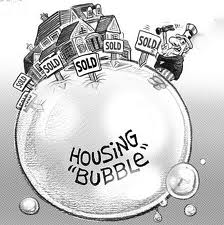
BLOG
2022 Housing Predictions
2021 was, to say the least, an interesting year in real estate. But as the year comes to a close, the big question on everyone’s mind is what does 2022 have in store?
2021 was, to say the least, an interesting year in real estate. But as the year comes to a close, the big question on everyone’s mind is what does 2022 have in store?
A recent article from realtor.com outlined some of their economists’ predictions for the 2022 housing market, including:
Home prices will stay high—but price growth will slow down. Home prices rose high and fast in 2021, with realtor.com economists predicting a 12 percent rise for 2021. And while the realtor.com team predicts that home prices will stay high, they also see that growth slowing down—with price growth projected at a much slower rate of 2.9 percent for 2022.
Inventory challenges will continue. Low inventory proved a huge challenge for buyers in 2021; fewer homes on the market meant higher competition and higher prices—and it looks like it’s going to stay that way in 2022. The economists at realtor.com only expect the number of homes available to increase by 0.3 percent in the coming year.
Mortgage rates will rise. Mortgage rates have been hovering near all-time lows throughout the year, creating even more demand for housing. But buyers hoping to score the lowest possible rate on their mortgage should act fast; the economists at realtor.com predict mortgage rates to hit 3.6 percent by the end of 2022—a significant increase from 2021’s low of 2.65 percent.
Download your FREE Insider Home Selling Tips Book! Get top dollar for your home!
Header Photo by Isabela Kronemberger on Unsplash
5 Things You Should Know Before You Flip A Property
Money is made at the buy, not the sell of your flip. When flipping a house your money is made at the purchase not at the sell of the house. So, many times people buy a house with the intentions of making a huge profit only to find out that they could not make any money after all the renovations because the purchased price of the house was to high.
1. Money is made at the buy, not the sell of your flip. When flipping a house your money is made at the purchase not at the sell of the house. So, many times people buy a house with the intentions of making a huge profit only to find out that they could not make any money after all the renovations because the purchased price of the house was to high. When you purchase your property you need to be sure that you buy the house with enough money to make renovations, have carrying cost, and add about 5 $6,000. Now, cost is at $147,000, and that is if everything goes as planned. Profit is under 10,000 dollars. The mistake was made at the purchase at the home, not the sell.
2. Get an inspection on the home - Get a complete inspection done on your property. By, spending a few hundred dollars on this expense you can save thousands in problems that you cannot see. Foundation, Pest, Wood Rot, Etc... By, getting a full inspection you can rest assured that you know every thing that is wrong with the property before its to late. In the contact for the house you need to make sure that you have 7 days to have a inspection preformed, and if the inspection finds problems that are going to cost more money that you are willing to spend you can get out of the contract with no penalties.
3. Don't do the work yourself: - Get a contractor or several sub-contractors and have the work done quickly. You need to have you house flipped ASAP, so that you can get it on the market and get it sold. When I started flipping my brother and me did a house together, and we did all the construction. I had a construction background and figured it would save thousands, but it took us over 4 months to get the work done that a contractor could have had the work done in a month. But, we trying to save money on our flip did all the work on our time off and after work, and it just took to long. On our 2'nd flip we used contractors for almost everything and had the house completely flipped with a new roof, new air conditioning, new hardwood, and much more in only 3 weeks. We did not have to spend all our time working on the property and were able to spend that time looking for the next deal. This is how you get rich in real estate.
4. Place the property 1 to 2 percent below market value: If you are wanting to flip real estate and make money the object is to buy and sell the property as quickly as possible, so that you can move on to the next house. If you purchase a house and try to sell it at top dollar to make and extra couple of thousand dollars on your flip, and end up holding it for 6 months you are loosing money. Get the house on the market at a price that is going to blow the competition away, and you will sell it no matter what the market conditions. On our second house the market for selling house went down do to the housing market as a whole, and the tightening of the loans across America. We were told that you could not sell a property in this market, but we went ahead anyway and flipped our house. After 3 weeks on the market we had 3 people wanting to buy the house. Why, because we offered it at such a great deal that people wanted to jump on it. That is what you have to do especially if the market is slow.
5. Use a real estate agent - Do not try to sell you house on your own. Harness the power of a real estate agent and the power of the MLS system. When you do a FSBO you are depending on people driving by your house and seeing you sign, with a real estate agent you have someone actively marketing you house to get it sold. Once again this will free up more time for you to look for more great deals. If you want to help the process I have found that craigslist and listing you house in google adwords help to, but use these tools with the help of a agent such as Laura Key to make sure I have all my bases covered.
I hope this article has been helpful with the basics needs of flipping a house. If you will study and learn you will make money. But, do your homework before you purchase a house, and make sure that you can pull a profit on your deal. Then, make it happen! I am a Investor Friendly Agent, let's get you some deals! Laura Key 310.866.8422
Laura Key on CBS News
Rising Housing Demand Leads to Homebuilder Lotteries
In California the inventory is extremely low. My buyers see this an an option! I hate that it's come to this! Just a year ago you did not have this issue!
White House Rolls Out 3 Foreclosure Prevention Efforts
Even though the market has become of hot bed in these last few months. There are still homeowners struggling to keep their homes. Here are some new programs that may help. Are YOU facing foreclosure? Call me! Laura Key 310.866.8422
The Obama administration announced the extension or debut of three programs aimed at helping distressed home owners avoid foreclosure. The three initiatives are:
Increasing outreach in the Making Home Affordable Program: The U.S. Department of Treasury is partnering with NeighborWorks America as well as the National Foreclosure Mitigation Counseling program to increase support for struggling home owners who seek assistance through the Making Home Affordable Program, which includes the Home Affordable Modification Program (HAMP). HAMP reduces monthly payments by more than $540 each month, on average. “Through the new initiative, housing counseling agencies will help struggling home owners successfully complete and submit application documents to their mortgage company free-of-charge,” according to the White House blog.
Informing the unemployed about programs: The Department of Labor will be encouraging American Job Centers to inform unemployed home owners about federal foreclosure prevention options that are available to them. For example, there is unemployment forbearance through HAMP that allows qualifying home owners who are unemployed to reduce or suspend their mortgage payments for up to 12 months.
HUD’s new Housing Counseling Office: The Department of Housing and Urban Development has launched a Housing Counseling Office, which offers at-risk home owners free or low cost information about foreclosure prevention and loan modification programs. It also offers general information on buying or renting a home, handling foreclosures, and how to avoid scams. The office is made up of a network of 2,500 HUD-approved housing counseling agencies.
“While we are encouraged that the housing market is on the path to recovery, our job is far from finished,” according to the White House blog. “There are still many struggling home owners who need assistance. By connecting eligible home owners with existing foreclosure prevention programs, our new counseling initiatives will enable more borrowers to remain in their homes and go a long way in ensuring a brighter economic future for these families.”
Source: The White House Blog
Economist Quashes Housing Bubble Rumors
I love what I do; however I have reservations about this report. I have had deep conversations with other agents and I firmly feel we are in a danger zone. Your thoughts? Laura Key 310.866.8422
Recently, rumblings of another housing bubble have been emerging, but one economist says with inventories expected to rise soon, the housing market is not at threat.
Rick Sharga, executive vice president with Carrington Mortgage Holdings, told a crowd at the REOMAC 2013 Summit & Expo in Dallas on Monday that the housing market should expect things to get worse before they start improving.
But “this is not the 2005 market,” he said. “We are not creating a bubble.”
Sharga says the lack of available home inventory is the reason why home prices are rising. New-home inventories are at their lowest level in more than 30 years, he said. “Very few markets are anywhere near where we were at the peak,” he said. The markets showing some “bubble-like tendencies” are housing markets that saw the biggest declines, he noted.
LPS Applied Analytics recently predicted that home prices could rise another 35 percent without affecting affordability.
Sharga predicts that by this time next year there will be too many homes for sale. Housing and foreclosure starts are expected to start rising within the next year.
Source: “Carrington’s Sharga: We Are Not Creating Another Housing Bubble,” HousingWire (April 8, 2013)
Does Moving Up Make Sense?
Don't get caught up in the madness of the market. Deciding to sell is a personal decision, take everything into account. I am here to assist! Laura Key 310.866.8422
These questions will help you decide whether you’re ready for a home that’s larger or in a more desirable location. If you answer yes to most of the questions, it’s a sign that you may be ready to move.
- Have you built substantial equity in your current home? Look at your annual mortgage statement or call your lender to find out. Usually, you don’t build up much equity in the first few years of your mortgage, as monthly payments are mostly interest, but if you’ve owned your home for five or more years, you may have significant, unrealized gains.
- Has your income or financial situation improved? If you’re making more money, you may be able to afford higher mortgage payments and cover the costs of moving.
- Have you outgrown your neighborhood? The neighborhood you pick for your first home might not be the same neighborhood you want to settle down in for good. For example, you may have realized that you’d like to be closer to your job or live in a better school district.
- Are there reasons why you can’t remodel or add on? Sometimes you can create a bigger home by adding a new room or building up. But if your property isn’t large enough, your municipality doesn’t allow it, or you’re simply not interested in remodeling, then moving to a bigger home may be your best option.
- Are you comfortable moving in the current housing market? If your market is hot, your home may sell quickly and for top dollar, but the home you buy also will be more expensive. If your market is slow, finding a buyer may take longer, but you’ll have more selection and better pricing as you seek your new home.
- Are interest rates attractive? A low rate not only helps you buy a larger home, but also makes it easier to find a buyer.





